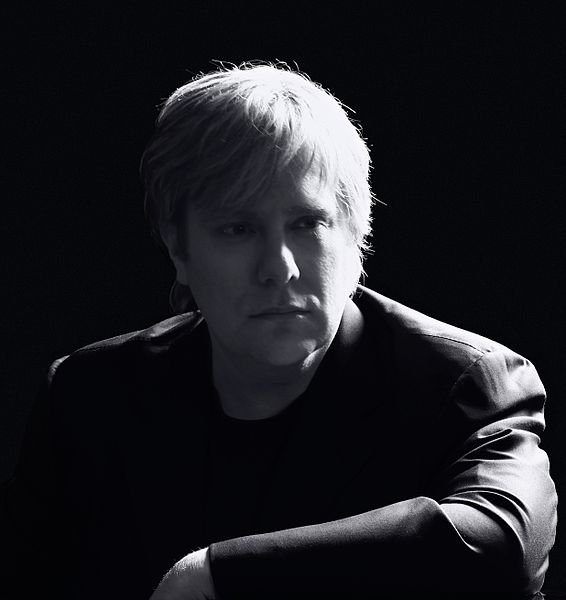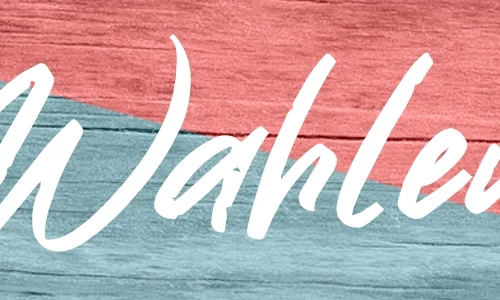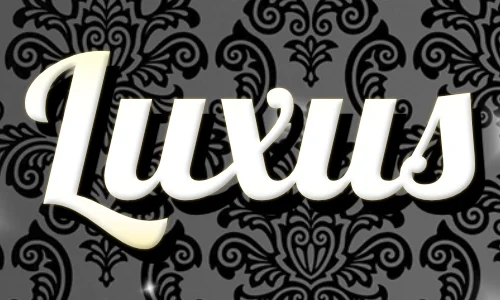About Cancel Culture
Now isn't that a nice topic I've chosen? One to which I, as a white male European, can certainly make an important contribution and in which my individual view is the one that really should be universally valid. Jokes aside, I don't really want to talk about the buzzword 'cancel culture' because I don't know enough about it. But it describes a problem that I came across during my last reviews and which I can't quite put a more appropriate label on.
To outline the problem, I only need to throw a few names into the room: Michael Jackson, J. K. Rowling, Jörg Kachelmann, or, in my case, Jeremy Soule. The case is clear: the question is whether you can - or should - separate art from the artist? Can I appreciate a work by a person whose opinions I do not share? Who has fallen into disrepute due to statements or scandals? Or do I have to condemn everything that someone has created at some point due to current circumstances? Translated with DeepL.com (free version)
I think there will be differing opinions here, as is the case with every topic: should we supply weapons or not; speed limits on highways; is there a God and if so, does he or she have a gender; does pineapple belong on pizza or should you fill a pineapple with pizza insead? There is no right or wrong here (except for the pineapple question), but rather diametrically opposed moral constructs and clashing world views.
Due to the polarization of society, the shades of grey are fading and black and white have become the only accepted tones in a colourful world. Am I part of this? Of course! And of course not! One topic interests or affects me more so I have an opinion there; the other less so - perhaps I don't have an opinion on the matter, or it's simply not important enough for me to want to share it.

(Image: https://www.last.fm/de/music/Jeremy+Soule)
Now, as I alluded to above, the problem came to light because one of my favorite composers became part of the MeToo discussion, which ultimately led to his disappearance from the world of game soundtracks. Soule was accused of raping a female developer 10 years ago (the allegations were made in 2019). In the time since, other voices have been raised accusing the composer of similarly serious offenses. Unfortunately, little has become public since then about the proceedings and the truth of the allegations.
I do not want to start a discussion at this point, nor do I want to take sides. These are allegations whose validity I cannot verify. I believe in the principle of the presumption of innocence, but I sympathize with the victims in the hope that the case will be solved. Since Soule denies the allegations and has since disappeared from the public scene, this could both be seen as an admission of guilt, or the retraction of a wrongly accused person.
I didn't want to dissect the case any further at this point, but merely outline the initial situation. Because, and now we are entering the realm of opinion on my part, it makes a difference whether someone has demonstrably acted wrongly and possibly even been found guilty, or whether it is just the insubstantial outcry of the mob. Deliberate false statements, as in the case of Gil Ofarim, who demonstrably wanted to ruin the life of a hotel employee due to his lust for attention, come to mind.
So there is no verdict in the Soule case, only plaintiffs and defendants and the big question for me: how do you deal with this? I am not personally affected and would never have heard of the allegations without the internet. Would ignorance have saved me from making a moral decision, or does it ultimately not matter to me how the case turns out?
Certainly not the latter, because there are also differences when it comes to mistakes and misconduct. It is one thing to mess something up, to make an ill-considered statement or to have a justified disagreement. And there are morally and criminally relevant mistakes, the way they are handled determines what kind of person you are. And this is where the decisive factor comes in for me: does being human influence one's art, or can it stand on its own?
From a purely philosophical point of view, this should not be possible; after all, there is always a will to create in (planned) products that is born from the creator. If no one picks up a paintbrush or sings into a microphone, there is no work of art - obviously. Is the work always the direct result of the creator's own personal life? I think so, since we always represent the sum of our experiences and convictions.
But that's exactly the point I want to make: our experiences and convictions at the time the works were created. What do I mean by that? People change. Biologically alone, there is the belief that we develop anew every seven years. From my life experience, I can only confirm this. Regardless of whether it really is seven years, five years or whatever: I am no longer the person I was as a child, as a teenager, as a young student or when I entered the world of work. It's not for nothing that I wrote in my essay About Nostalgia: "Present-day Mattis would probably want nothing to do with past-day Mattis and vice versa."
Like every human being, I am undeniably the sum of my experiences. But just as I am a product, I am also a producer. However, the opinions, convictions and actions that I take today do not necessarily have to be based exclusively on my personal development. If Corvo is run over tomorrow, I could go on a vendetta against all the car drivers in Cologne until I find the culprit. Is this due to my intrinsic motivation for justice? Do I have a predisposition to act in this way? Or is it a manifestation that is catalyzed and manifested by this event? I digress.
The reason I am making this argument is not to justify immoral actions. In no way am I trying to justify acts for which Jeremy Soule or other potential perpetrators are rightfully accused. I just want to say that a work of art was created by a person at a point in time X that only that person knows who they were at the time.
Does that make it any better? No. And the longer this text gets, the harder it is for me to develop a coherent argument without constantly lapsing into apologism. What did I originally want to clarify again? Oh yes: Can the artist and the artwork be separated from each other?
In my opinion, this is a consideration that depends on both the circumstances and individual perception. In the case of Soule, which has not been clarified at the time of writing this article, the decision is comparatively easy for me: yes, I can separate artist and artwork. This is not even necessarily due to the fact that he has not yet been convicted, as even then I would still make this mental divide.
In my opinion, an essential aspect in this case is that his works of art are soundtracks - probably the most impersonal form of artistic acoustics besides stock music. Unlike the music album of a band or an artist, there are usually a lot of factors and decision-makers involved. 'We need this and that music', 'here comes this and that moment', 'make this many songs'... you can see where I'm coming from.
At the same time, the score remains inextricably linked to the identity of the game. Both can function independently of each other, the music even better than the game. But just as the sound of the "Super Mario Bros." theme brings images of the jump 'n' run to my mind, "One-Winged Angel" immediately pops into my head when I see the villain Sephiroth from Final Fantasy VII - and not the artist.
It's different whether someone has contributed 'only a part' of an overall work, or performs the song front and center. Should all Assassin’s Creeds be boycotted because a few (but still too many) people at Ubisoft have misbehaved and thus devalued the work of all other employees? Personally, I'm not dogmatic enough for such a collective punishment.
Again, a more practical example from my perception, and to stick with the names from above, my take on Joanne Rowling: even if I don't approve of recent appearances and statements, J.K. Rowling has created a piece of pop culture with the Harry Potter-series that I can appreciate. There are depictions that can be interpreted as an expression of her thinking in one way or another, but I see this as a series of novels that tell a fantastic story about an outsider in a magical world.
And I love Soule's compositions just as much, even if he is currently being pilloried. That doesn't mean that I approve of him or his actions - on the contrary. But I leave his creations untouched. His music allows me to immerse myself in the worlds of The Elder Scrolls, Supreme Commander, Company of Heroes and even Harry Potter , regardless of who he is as a person. And so, in my review of Star Wars: Knights of the Old Republic at the beginning of last year, I wrote about the Soule case: "These people have given me joy for which I am very grateful and which I will not let them take away from me."
I can appreciate these works, their influence on pop culture and my mood. I give credit for their existence to their creators and accept the circumstances and intentions under which they were created. So let's end with another black and white opinion: in the end, it's art. And the perception and approach to art is individual. But who knows, maybe I'll change my mind again in seven years' time.



